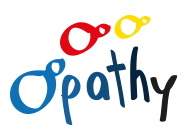Marie Skłodowska-Curie Action ITN OPATHY
H2020 MSCA ITN
OPATHY is an innovative translational research training network, in the frame of the Marie-Skłodowska-Curie Action, that will explore the potential of next-generation high-throughput technologies, including genomics, transcriptomics and proteomics, to study the interactions of yeasts that cause disease to humans (e.g. Candida and Cryptococcus sp.) with their host, and to develop new diagnostic tools to monitor yeast infections in the clinic. Today, these infections are poorly understood, difficult to diagnose, and are becoming increasingly frequent and serious, affecting over 300 million people worldwide. Pressing problems are the emergence of resistance to anti-fungal drugs, the persistence in the host, and the lack of fast and efficient diagnostic tools to direct to the appropriate treatment. A total of 13 Early Stage Researchers (ESRs) will be trained at 11 centers in Austria, Belgium, Germany, Spain, the Netherlands and the UK. The project is coordinated by the Centre for Genomic Regulation (Barcelona, Spain).

Proteomics, transcriptomics and genomics measurements of strains and infections will be integrated with state-of-the-art computational analyses to identify novel biomarkers that are able to determine the infection stage, the infective pathogen, and the potential resistance traits. This knowledge will drive the development of diagnostic tools based on the detection of specific DNA sequences (by PCR) or antibodies (by Elisa or proteomics).
Objectives
- Comparative transcriptomics of host-pathogen interactions
- Proteomics and antibody-assisted identification of yeast pathogens
- Bio-informatic analysis of the yeast infectome in relation to resistance problems
Role of Ghent University
The Laboratory for Bacteriology Research (Faculty of Medicine & Health Sciences) will focus on Candida vaginitis (acute and chronic infection) and apply dual RNA sequencing to determine the expression of virulence characteristics in Candida albicans at the same time as the local vaginal immune respons of the patient. One ESR will carry out this research in close collaboration with the CRG (Barcelona, Spain) and the Hans Knoll Institute (Jena, Germany).
Contact
Prof. Mario Vaneechoutte
Laboratory Bacteriology Research, Department Clinical Chemistry, Microbiology & Immunology
Phone number: +32 9 33 23692
E-mail: Mario.Vaneechoutte@UGent.be